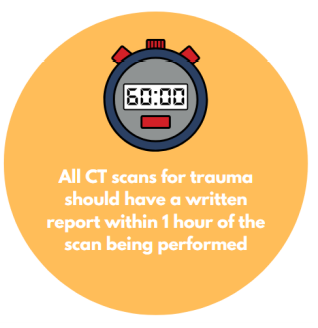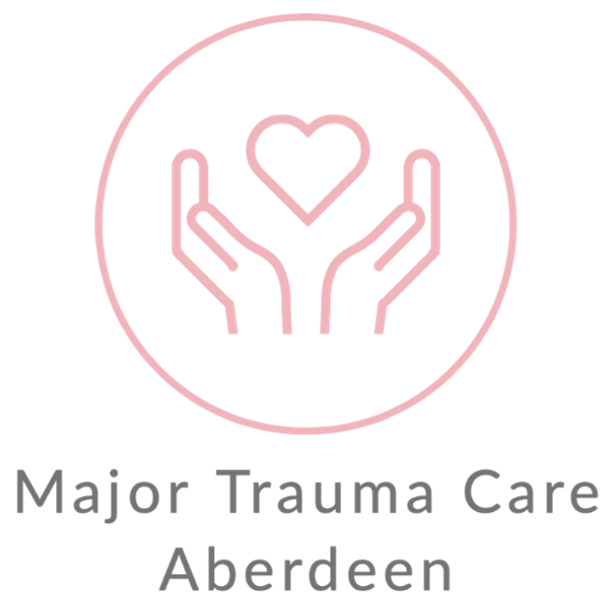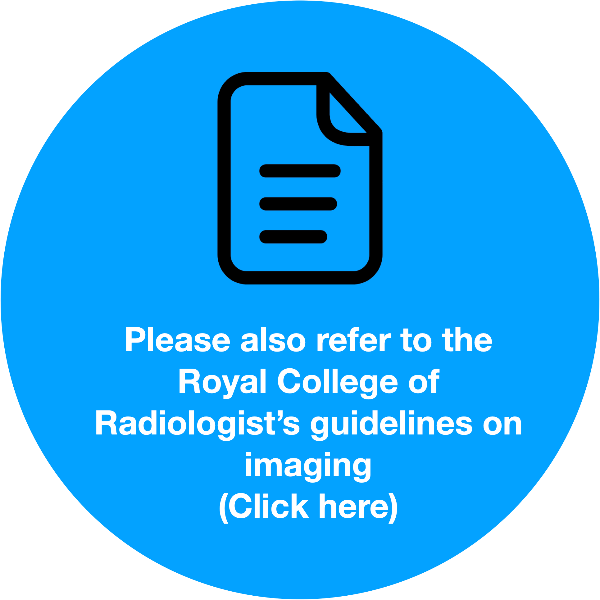- The Radiographer and Duty Radiologist are part of the Standard Adult & Paediatric Code Red Trauma Team activations.
- The Radiographer will clear the CT in time for arrival of the patient.
- CT requests should be discussed with the Radiologist and appropriate protocol determined.
Access to CT
Transfer to CT
Straight to CT
- In select circumstances, patients can go straight from the ambulance to CT.
- The patient must be under the care of a member of the EMRS team, who will judge patient suitability.
- Broadly speaking, patients will have undergone trauma significant enough to warrant CT but be sufficiently stable that they do not need to go to Resus first for immediate treatment.
- Full details are in the straight to CT protocol.
CT reporting times
- The radiologist should provide a written “Primary Survey” report to the nominated TTL for all Trauma Call CTs as soon as possible, ideally whilst the patient is still in CT.
- Report is provided on pre-printed template.
- This also provides an opportunity to update the radiologist with any further clinical information.
- All CT scans for trauma should have a written report within 1 hour of the scan being performed.

MRI scanning
There is daytime access to MRI for trauma at the MTC. The majority should be performed within 24 hours of request. Out of hours MRI is currently restricted to suspected cauda equina compression. MRI requests for trauma should be discussed with a Neuroradiologist or MSK Radiologist.
Indications in trauma:
- Spinal injury with neurological deficit.
- Suspicion of ligamentous injury to the cervical spine with normal CT.
- CT has demonstrated narrowing of the spinal canal or an unstable bony injury.
Activation of interventional radiology (IR)
- Call the interventional Radiologist immediately if the patient has evidence of active haemorrhage on CT.
- The IR Consultant will review the CT to determine if suitable for IR management.
- The IR Consultant should activate the team who should be ready within 30 minutes of activation.


